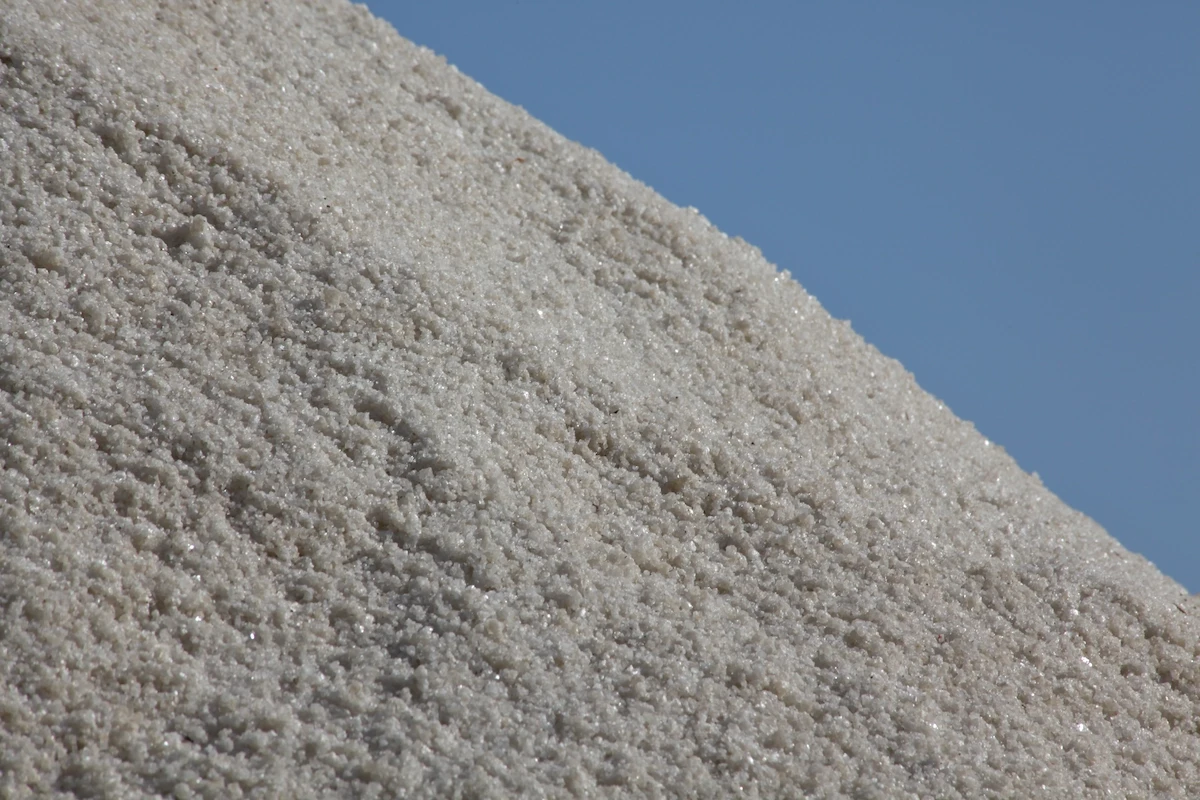
09-07-2025
What Is Silica Sand and Its Function in Water Filtration
Have you heard about silica sand? If you work in the construction field, you might be familiar with silica sand because it is used for making floors and glass. However, aside from becoming construction materials, silica sand can be used in industrial water treatment, especially in water filtration.
This article discusses the advantages of silica sand as a water filtration medium. Therefore, make sure to read this article thoroughly.
What Is Silica Sand?
Before we get into the uses of silica sand in water filtration, let’s learn more about this construction material first. Silica sand is made of silicon dioxide and is considered natural, which you can find in many areas globally.
Silica sand is also often referred to as quartz sand. It is often found in lakes, beaches, and river areas. According to Silica and Clay Dispersed Polymer Nanocomposites, silica sand is a material made from the richest elements in the earth's crust, namely silicon and oxygen.
This book also mentioned that 56% of Earth’s surface contains silica, and 95% of it is rocks. Moreover, Statista revealed that in 2022, Indonesia produced 3.07 million cubic meters of silica sand.
Read also: What Is Demineralized Water? Here Is the Production Process
The Properties of Silica Sand

Silica sand has several properties that make it ideal for water filtration. It is porous so that water can pass through it smoothly. It can also filter small particles in water efficiently.
Not only that, but quartz sand has long-term durability and is easy to maintain. Furthermore, it is resistant to pressure, heat, and abrasion, making it suitable for treating wastewater, clean water, industrial water, and domestic water.
Furthermore, silica sand is hard and resistant to several chemicals. It can also remove organic substances and contaminants from water.
How Silica Works as a Water Filter
In general, silica sand is a water filter that undergoes mechanical filtration. This means that when water passes through the sand, contaminants and small particles will be trapped, and the water becomes cleaner. The substances will also stick to the surface of the sand (adsorption).
With these physical characteristics, silica sand is believed to be effective in answering the challenges in water treatment, especially in producing proper water. In fact, the effectiveness of silica sand can be improved to maximize the performance and adsorption capacity.
In addition, silica sand comes in various sizes, such as 8–16 and 14–20 mesh. Both sizes are ideal for water treatment because the conditions are suitable for filtering particles in water.
Furthermore, the effectiveness of silica sand is determined by its criteria. To choose the right quartz sand, you should consider the purity level of the silicon dioxide in the sand, the size that suits the needs of the water filtration system, and its resistance to chemicals.
Read also: What Is Water Resource Management and Why Is It Important?
The Advantages of Silica Sand

Silica sand gives many advantages and functions in water treatment, such as:
1. Decreasing Total Suspended Solids (TSS) in Water
The first benefit is that silica sand can decrease the total suspended solids, which are the suspended solid particles in water. Some solids contained in water are sulfides, sludges, metal oxides, algae, clay, fungi, and bacteria.
2. Filtering Water
One of the main functions of silica sand is to filter water properly, thanks to its uniform sizes and porous structures, which trap solids. Consequently, contaminants and soft particles can be caught and do not pollute the water.
3. Removing Contaminants in Wastewater
As explained earlier, silica sand has a hard structure and is chemical-resistant, making it ideal for filtering wastewater. This sand can effectively condense microorganisms, harmful substances, and heavy metals. Thus, the filtered wastewater can be safer and cleaner for further treatment.
4. Durable Filter Media
Silica sand is abrasion-resistant, making it more durable. Thanks to this property, you can maintain your filter because you can use the sand for a long time without frequently changing it.
5. Flexible Filtration Media
Quartz sand is flexible, which means it can be used in various conditions, such as slow or fast filtration. It is famous for its adaptation to numerous filtration processes, making it a multifunctional filtration medium.
6. Filtering Pool Water
This sand is commonly used to maintain the quality and safety of the pool water. Due to its porous structure, it can trap leaves, dirt, and pool waste in swimming pools, making the water clearer.
7. Filtering Drinking Water
One of the benefits of silica sand is that it filters drinking water. In potable water treatment, silica sand is used to remove contaminants, microorganisms, organic substances, and others. Thus, the water can be cleaner and safer to drink.
To filter water with silica sand at home, you can use a water filter with silica sand as the filtration medium and install it in the water pipe.
That concludes the information about silica sand for water filtration. Silica sand is a natural material having many benefits, especially in the construction and water filtration fields. The effectiveness of the filter is often used to treat water, including wastewater.
Talking about wastewater treatment, the Chandra Asri Group-affiliated company, Krakatau Tirta Industri (KTI), serves standardized, safe, and eco-friendly wastewater treatment.
In addition, KTI also provides demineralized water and clean water for industrial purposes. So, entrust your industrial water and wastewater treatment to Krakatau Tirta Industri!
Read also: Clean Water Treatment and the Developed Technology